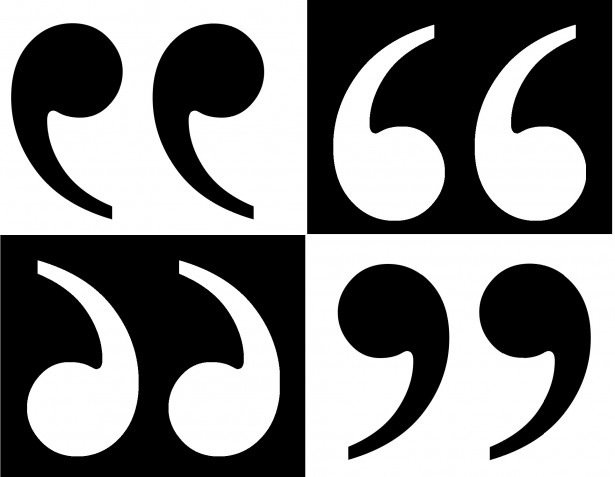In academic writing, drawing a reference to other academic sources such as journals, monographs or anthologies, is essential. However, it is not always clear whether an idea or concept should be expressed in the same wording or can or even should be described by using our own words.
Direct quotes
As a general guideline in academic writing, it is very important that direct quotes from other sources should only be used selectively. Even if the temptation might be high and your motivation to formulate the idea in your own words low- your essay should really be your own work. If you think it is too difficult to decide whether or not to use a direct quote, think about these aspects:
- First and foremost, direct quotes are used when the language matters, i.e. when quoting an original primary source such as a novel, an interview, or similar.
- It is effective and useful to integrate a direct quote if you want to demonstrate that an authority supports your argument.
- If the quote uses a specific historical language that is striking for that period of time, you can quote directly.
- If you want to refer to specific concepts, ideas or technical terms such as in philosophy or social sciences, it makes sense to quote the actual expression. Otherwise you might need to write a lot more words to describe the same issue that could otherwise be described in two or three expressions. Such one- or two-word specialized terms are not even considered quotes if they have become part of the disciplinary discourse.
- Sometimes a well-expressed statement can lose its specific meaning or the meaning might be changed if it is paraphrased or summarized.
Other than these aspects, bear in mind that you should not use a direct quote for the sake of using it. Your argumentation should make it clear why you integrate a certain quote in a certain position. Also, remember that a quote does not stand for itself. You should always introduce it smoothly into your text and also explain it.
Paraphrasing
While most people have an idea about direct quoting, it is not always clear what we mean by paraphrasing. When the teacher encourages you to paraphrase rather than to quote directly, it means that he or she wants to see whether you have really understood the core idea or concept that you are referring to. This means that paraphrasing is about rewriting the existing content in your own words. Sometimes your paraphrased passage will be slightly shorter in length than the original source as you will refer to the broad segment of the source by slightly condensing it. However, make sure not to change the author’s intention as this may result in a misinterpretation of the source. As you are not quoting directly, you do not need to use quotation marks. However, you still need indicate that you are referring to a specific source as it is not your own idea you are writing about.
It is effective to paraphrase if…
- You want to explain a certain idea but do not need the specific language used to express it.
- You want to explain the content of a quote in a more accessible language. Often, academic language can be complicated to grasp. If you think that the quote overcomplicates your argument instead of clarifying it, you should definitely paraphrase it.
Here are some tips for you in order to learn how to paraphrase:
- Make sure to read the passage that you want paraphrase carefully in order to grasp its core idea.
- Try to rewrite the source in your own words by incorporating 2-3 key terms.
- Reread your version of the passage and make sure to change any expressions or phrases that you have copied from the original source.
- Try to think about synonyms to find different words which convey the same meaning.
- Change the syntax of the original quote and construct a different sentence structure in your passage.
As you can see, there are certain rules and guidelines which can help you to decide when to quote directly or to paraphrase. The most important aspect is that you always remain transparent about the source you are using and that you incorporate the sources the most effective manner.
You can find specifics on how to cite your sources accurately in a separate post.


